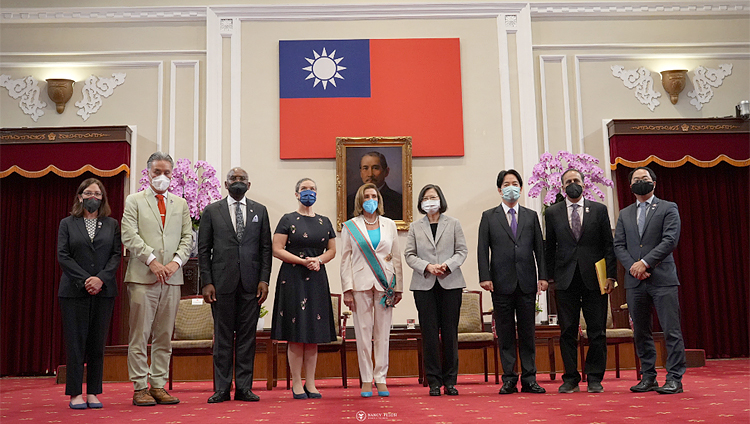INDIAN ARMED FORCES CHIEFS ON OUR RELENTLESS AND FOCUSED PUBLISHING EFFORTS

The insightful articles, inspiring narrations and analytical perspectives presented by the Editorial Team, establish an alluring connect with the reader. My compliments and best wishes to SP Guide Publications.

"Over the past 60 years, the growth of SP Guide Publications has mirrored the rising stature of Indian Navy. Its well-researched and informative magazines on Defence and Aerospace sector have served to shape an educated opinion of our military personnel, policy makers and the public alike. I wish SP's Publication team continued success, fair winds and following seas in all future endeavour!"

Since, its inception in 1964, SP Guide Publications has consistently demonstrated commitment to high-quality journalism in the aerospace and defence sectors, earning a well-deserved reputation as Asia's largest media house in this domain. I wish SP Guide Publications continued success in its pursuit of excellence.
The Choppy Waters of Taiwan Straits
US House Speaker Nancy Pelosi's stop in Taipei is the first time that a US House speaker has visited Taiwan in 25 years and has fueled US-China tensions
 |
The Author is former Chief of Staff of a frontline Corps in the North East and a former helicopter pilot. He earlier headed the China & neighbourhood desk at the Defence Intelligence Agency. He retired in July 2020 and held the appointment of Addl DG Information Systems at Army HQ. |

Cause of the Furore
The spectacle of an 82-year-old US Speaker of the House Nancy Pelosi landing up in Taiwan despite numerous warnings from China, which claims the self-governing island as its territory, captured the imagination of the media around the globe. Pelosi, second in line to the presidency, flew into the island on a US military aircraft with all the government heft that implies. China reacted by scrambling its fighter jets and its fleet, stopping short of precipitate action. Live-fire drill are now continuing from both sides, each raising the rhetoric to higher decibels. Pelosi has gone back after poking the hornets’ nest. The timing is very interesting though. It may be a case of rushing for a last hurrah before November’s congressional midterm elections in which she is expected to lose the speaker’s gavel. So, in a way, if some sceptics term it as a reckless electoral stunt, they are not far off the mark.
Of course, there is the ruse of American domestic legislation which requires the US to provide Taiwan with the means to defend itself from China. As the sole superpower, the US has arrogated itself to declare its ‘values and interests’ and its domestic laws as the end-all in international affairs, over-ridding the UN and other existing statutory international treaties, obligations and conventions. The list is long. Fortunately, on Taiwan, the US has so far maintained a “strategic ambiguity” whereby it has never directly promised to intervene militarily in a conflict with China. The guffaw-prone President Biden, asked at a press conference in Tokyo on May 23, 2022, if the U.S. would intervene military to defend Taiwan, said, "that's the commitment we made." The White House promptly walked back on these remarks, providing an escape chute.
On Taiwan, the US has so far maintained a “strategic ambiguity” whereby it has never directly promised to intervene militarily in a conflict with China
It is just about a year since the US made that spectacularly humiliating withdrawal from Afghanistan with the Taliban taking over Kabul on August 15, 2021. The chaotic pull-out left it with shattered prestige and raised serious questions on its reliability as a security provider. It has since precipitated a war in Ukraine drawing Europe back into its embrace, for the time-being. Taliban leader Al-Zawahiri has been eliminated in a drone strike on August 02, 2022 when he stood in the balcony of his Kabul hide-out. The hand of Pakistan military and the ISI in tipping the US is strongly suspected, considering the precarious finances of Pakistan, seeking succour from Uncle Sam. That said, it is suspect if the killing contributes in any significant manner in lessening the threat from radical Islamic groups nesting in the lawless Afghanistan.



Historical Perspective
Coming back to the current churning in Taiwan, it has all the ingredients of a Hollywood potboiler. Only problem is that it involves real people and real countries, specifically a nuclear armed and assertive China that poses a serious challenge to American hegemony. Geopolitics aside, historically China’s claims on Taiwan are dubious. Its only in 1887 that China proclaimed Taiwan as one of its provinces under the Qing dynasty. But barely 8 years later, China ceded Taiwan to Japan ‘in perpetuity’ following its defeat in the Sino-Japanese war. Taiwan remained under Japanese colonial rule from 1895-1945 and has been self-governing since then. Even going further back, till 17th century Taiwan was populated by Malayo-Polynesian tribes and had no relationship with China.
The brunt is being faced by Europe which has succumbed to the American ploy unwittingly as it battles unprecedented high rates of inflation and stares at a shivering difficult winter
However, we must recognise that national discourses are not rooted in verifiable facts and invariably fails to distinguish truth from lies. The only so-called unfinished agenda of the Chinese Communist Party’s (CCP’s) goal of “reunifying” all of China has, in recent years been centred around the fate of Taiwan after it got back Hong Kong from the UK. In the run up to the 20th National congress in November which is likely to see Xi Jinping securing an unprecedented third term, the unfolding ramp up of tensions in the Taiwan Straits has to be carefully calibrated by all the three parties to conflict. Even a small misstep by any of them could lead to an immediate escalation into armed conflict.
The ongoing war in Ukraine does provide some clues to the recent US actions in Taiwan. Thousands of US companies profit from this war by selling weapons and military equipment funded by federal money drawn from a $40 billion aid package for Ukraine approved by the US Congress in May. The US is not directly impacted by either disruptions in Russian oil and gas supplies or the millions of refugees that have left Ukraine. The brunt is being faced by Europe which has succumbed to the American ploy unwittingly as it battles unprecedented high rates of inflation and stares at a shivering difficult winter. Thus, close to mid-term elections, escalating tensions in the Taiwan Straits while keeping it manageable helps in channelling US federal money to arms contractors under the garb of emergency military aid package to Taiwan and some other neighbours in the region, especially Japan. And the arms contractors have a big role to play in funding re-election bids by congressmen.
India's stand
Some strategic analysts, especially those heavily inclined towards US viewpoint have drawn parallels with the long simmering Sino-Indian territorial dispute. Many are itching that India should denounce Chinese response to the Pelosi visit unequivocally. They argue that neutrality is complicity. These are the same analysts who profess a more muscular presence of India in the QUAD to protect its territorial interests. Thus, while Taiwan has the US security umbrella to protect its territorial integrity, India must enter into some such military and diplomatic pacts and clearly align itself against China. These arguments are provocative and may prove ruinous.
Escalating tensions in the Taiwan Straits while keeping it manageable helps in channelling US federal money to arms contractors under the garb of emergency military aid package to Taiwan
India has taken a very nuanced stance on the Russia-Ukraine conflict so far and holding on to that line despite enormous pressures. India has been buying up Russian oil at deep discounts for its own energy security and the Reserve Bank of India (RBI) has announced that it is putting into place a mechanism for international trade settlements in rupees. Similarly, India has maintained silence on the Taiwan Straits rumblings though it has robust trade relations with Taiwan. India is not Taiwan and the historical Sino-Indian territorial dispute must await its own opportune time for a negotiated settlement. India has also made it clear that it is not open to arm-twisting and the Galwan incident of June 2020 stands testimony to our resolve. Let’s keep our powder dry.





